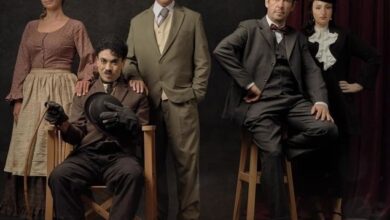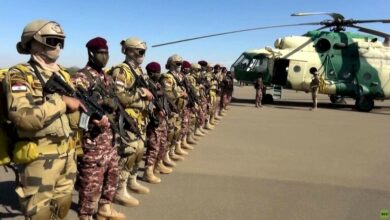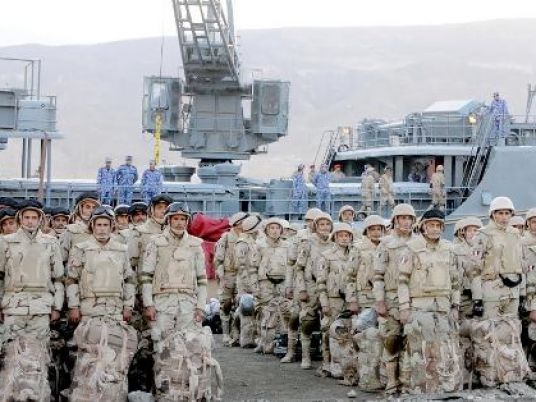Yusuf al-Qa'id's acclaimed novel, “War in the Land of Egypt,” was set during the brief October 1973 war and published in Lebanon in 1978, just before the signing of the Camp David Accords.
Fellow Egyptian novelist Khairy Shalaby summed up these surprising times in his 2002 novel, “The Hashish Waiter”:
Just as we’d been shocked by the ungodly defeat of ’67, we were blown away – again taken completely unawares – by the news of our crushing victory over the Zionist enemy in ’73.
It must have felt like a glorious victory on 7 October. But, as Shalaby’s narrator continued, this victory didn’t lead quite where people had hoped:
And just as we were surprised by the news of the enemy breaking through and encircling our Third Army and the ceasefire, we were also shocked – without the slightest premonition at all – by the news of President Sadat’s trip to Jerusalem to show the Israeli leaders his good will and to prove he was serious about wanting to pursue peace between the two peoples.
Shalaby’s novel goes on to narrate the street’s shock when Anwar Sadat appears on television, “embracing and being embraced by our enemies.” But al-Qa’id’s novel was written before these revelations, when Egyptians were still overwhelmingly positive about October 1973.
Al-Qa’id’s novel does not criticize the military or examine foreign policy. Indeed, it uses Egyptian patriotism as a way of questioning the ruling classes’ corruption and greed. The novel’s bite was close enough to the bone that Sadat’s regime banned the book, and it wasn't available in Egypt until 1985, four years after Mubarak assumed power. By then, the bite had apparently faded: In 1991, it was made into a film starring Omar Sharif.
And yet the novel is still readable and relevant, both because of its humor and its patient social critique. Qa’id’s tone is unlike Shalaby’s garrulousness, and makes use of a persistent, gentle irony. The story is told by turns through six separate points of view, beginning with the wealthy village umda (mayor) who wants to get his youngest son out of military service, and ending with the investigator who tries to make sense of the great crime that occurred.
Each small story is told with an appealing intimacy; each narrator does his best to tell the “truth” of the matter.
The reader is thus the final judge, the only one who sees the larger picture. Each narrator must justify himself, beginning with the wealthy umda: “So I had to do something, there was just no choice – who would send his own son to be killed?”
This is an Egypt where almost everything can be bought. School certificates, for instance, were an easy commodity: “You could buy them in Cairo, he said, and he personally knew a doctor in the Abbasiya district who had a whole stock of them.”
Military service was much the same. Exemptions could be secured through any number of means: one of the umda’s sons memorized the Qur’an; for another, the umda divorced his son’s mother; for a third he paid LE20 – “and a pound was really worth something in those days.” But the youngest son presented a problem, and none of the usual methods would suffice. For him, a stand-in had to be found. A bright poor boy, “Masri” (Egyptian), was enlisted in place of the umda’s son.
The story of Masri standing in for the umda’s son is told with a light, humorous touch and frequent winks to the reader. The nameless Night Watchman, Masri’s father, wonders who will protect him from evil. "'God will protect you,' the officer answered, ‘and after God you have the umda. He'll be responsible for bringing your situation to the attention of the appropriate authorities, so that they can take action on your behalf.’”
One of the most delightful things about the story is how the guilty parties don't find themselves particularly guilty. Sure, they have occasional pangs. But the broker who arranged the whole affair only got into the business to help poor people. And the umda tells himself: “In a way, I was doing Masri a favour. The land they were farming was going to be taken back and given to me, and the family's sole source of income would be his father's wages…”
The novel never lobs a direct question at the reasons behind the 6 October War. The hero of the novel – Masri – is also a war hero, dying as he helps others at the front lines. But what is this homeland, this Egypt? Is it Masri’s Egypt? Or is it the Egypt owned by the umda? Masri’s friend, who must untangle the skein of his identity, says:
I won't raise the issue of the motherland and patriotism because we all love Egypt in our own different ways, but which Egypt do we really love? The Egypt of people dying of hunger or the Egypt or people dying of overeating?
The question remains trenchant: Must patriotism be blind? Or can it both love Egypt while also demanding better?




